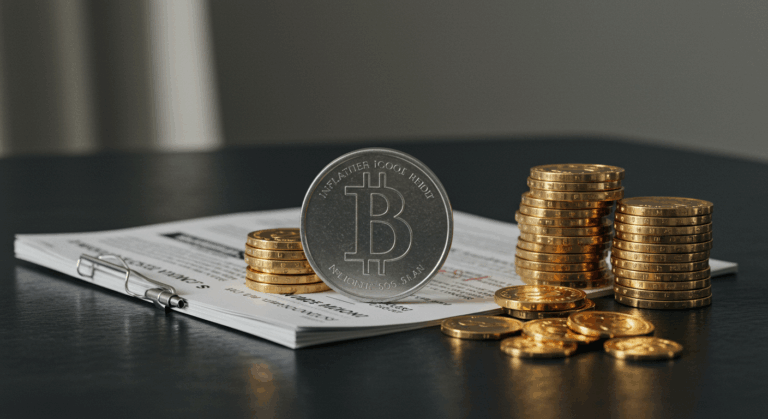Personal Loans: How They Work and When They Are Right for You
Life often presents unexpected expenses or opportunities that require more cash than you have on hand. Whether it is a home renovation project, a sudden medical bill, or the chance to consolidate high-interest debt, finding the right financial tool is crucial. Personal loans are one of the most versatile and popular options available, but are they the right choice for your situation? Understanding how they function is the first step toward making an informed decision that supports your financial health.
This comprehensive guide will demystify personal loans. We will break down exactly what they are, how the process works from application to repayment, and explore the key scenarios where a personal loan can be a smart financial move. We will also highlight situations where you should probably steer clear, ensuring you use this powerful tool wisely.
What Exactly Is a Personal Loan?
A personal loan is a type of installment loan that you can borrow from a financial institution like a bank, credit union, or online lender. Unlike a mortgage or an auto loan, most personal loans are unsecured, which means they are not backed by collateral like your house or car. The lender approves your loan based primarily on your creditworthiness, which includes factors like your credit score and income.
When you are approved for a personal loan, you receive the full amount in a single lump sum. You then repay the loan, plus interest, in fixed monthly payments over a predetermined period, known as the loan term. These terms typically range from one to seven years. Because the interest rate and monthly payments are fixed, it is easy to budget for them, providing a predictable path to paying off your debt.
How Do Personal Loans Work? The Step-by-Step Process
The journey to securing a personal loan is generally straightforward. While each lender has its own specific procedures, the process typically follows these four key stages:
- Application: The first step is to complete a loan application. You will need to provide personal information, including your name, address, Social Security number, and details about your employment and income. Lenders use this information to verify your identity and assess your ability to repay the loan.
- Approval: After you submit your application, the lender will review your financial profile. A major part of this review is a credit check, where the lender evaluates your credit history and score. A higher credit score generally leads to a higher chance of approval and a lower interest rate. Some lenders provide pre-approval, which gives you an idea of the amount and rate you might qualify for without a hard inquiry on your credit report.
- Funding: Once your loan is approved and you have signed the agreement, the lender will disburse the funds. This is usually done via a direct deposit into your bank account, and the money is often available within a few business days, or sometimes even on the same day.
- Repayment: Repayment begins about a month after you receive the funds. You will make fixed monthly payments for the entire loan term. Each payment is divided between the principal (the amount you borrowed) and interest (the cost of borrowing). Completing all payments on time will satisfy the loan agreement.

Key Terms You Need to Know
When comparing personal loans, you will encounter several important terms. Understanding them is essential for evaluating different loan offers and choosing the best one for your needs.
- Annual Percentage Rate (APR): This is perhaps the most important figure to consider. The APR represents the total annual cost of borrowing money. It includes not only the interest rate but also any lender fees, such as origination fees. For this reason, the APR gives you a more accurate picture of the loan’s true cost than the interest rate alone.
- Principal: This is the initial amount of money you borrow from the lender. Your monthly payments go toward repaying the principal as well as the interest accrued.
- Interest Rate: The interest rate is the percentage the lender charges for the loan. It is a key component of the APR but does not include fees.
- Loan Term: This is the duration of the loan, or the amount of time you have to repay it in full. A shorter term means higher monthly payments but less total interest paid. A longer term results in lower monthly payments but more total interest paid over the life of the loan.
- Origination Fee: Some lenders charge an origination fee to process your loan. This fee is typically a percentage of the loan amount and is often deducted from the principal before the funds are disbursed to you.
When Is a Personal Loan a Good Idea?
A personal loan can be an excellent financial tool when used for the right reasons. The key is to borrow for a purpose that improves your financial situation or helps you manage a necessary, significant expense.
One of the most effective uses is for debt consolidation. If you have multiple high-interest debts, such as credit card balances, you can use a personal loan to pay them all off. You are then left with a single monthly payment, often at a much lower interest rate. This can simplify your finances and help you save a significant amount on interest, accelerating your journey out of debt. Thoughtful debt management is a cornerstone of a healthy savings strategy.
Other sensible uses include financing home improvements that add value to your property, covering unexpected medical expenses that are not covered by insurance, or paying for major life events like a wedding or relocation costs. In these cases, a personal loan provides immediate access to funds with a clear and structured repayment plan.
When to Avoid a Personal Loan
While versatile, personal loans are not suitable for every situation. Taking on debt for non-essential or discretionary spending is generally a poor financial decision. Avoid using a personal loan for things like vacations, luxury shopping, or speculative investments. Funding a lifestyle you cannot afford with borrowed money can quickly lead to a difficult debt cycle.
You should also be cautious about using a personal loan if you are not confident in your ability to make the monthly payments. Before you apply, review your budget carefully. If the additional payment would strain your finances, it is best to seek alternative solutions. A loan should be a solution to a financial problem, not the cause of a new one. Managing your obligations is a critical aspect of your overall personal finance.
Conclusion: A Tool to Be Used Wisely
Personal loans can offer a lifeline in times of need and an opportunity to achieve significant financial goals. Their fixed rates and predictable payments make them a stable and manageable form of credit for everything from consolidating debt to financing a major purchase. They provide a clear end date for your debt, unlike the revolving nature of credit cards.
However, their accessibility also demands responsibility. The decision to take out a personal loan should always be made after careful consideration of your budget and financial goals. When used thoughtfully, it is a powerful tool for navigating your financial journey. If you need guidance, consider speaking with a financial advisor with demonstrable experience to explore your options.
Frequently Asked Questions
What is the difference between a secured and an unsecured personal loan?
The primary difference is collateral. An unsecured loan, which is the most common type of personal loan, does not require you to pledge any asset as security. The lender approves it based on your creditworthiness. A secured loan requires collateral, such as a car or a savings account. Because the lender has an asset to seize if you default, secured loans may be easier to obtain and may come with lower interest rates, but they also carry the risk of losing your asset.
How does a personal loan affect my credit score?
A personal loan can affect your credit score in several ways. When you apply, the lender will perform a hard inquiry on your credit report, which can temporarily lower your score by a few points. Once you are approved and start making payments, it can have a positive impact. Making consistent, on-time payments demonstrates credit responsibility and can help improve your score over time. It also adds to your credit mix, which can be a positive factor.
Can I pay off a personal loan early?
In most cases, yes. Most lenders allow you to make extra payments or pay off the entire loan balance before the end of the term without any penalty. This is a great way to save money on interest. However, some lenders may charge a prepayment penalty, which is a fee for paying the loan off early. It is crucial to read the loan agreement carefully and ask the lender about their policy on prepayment before you sign.





